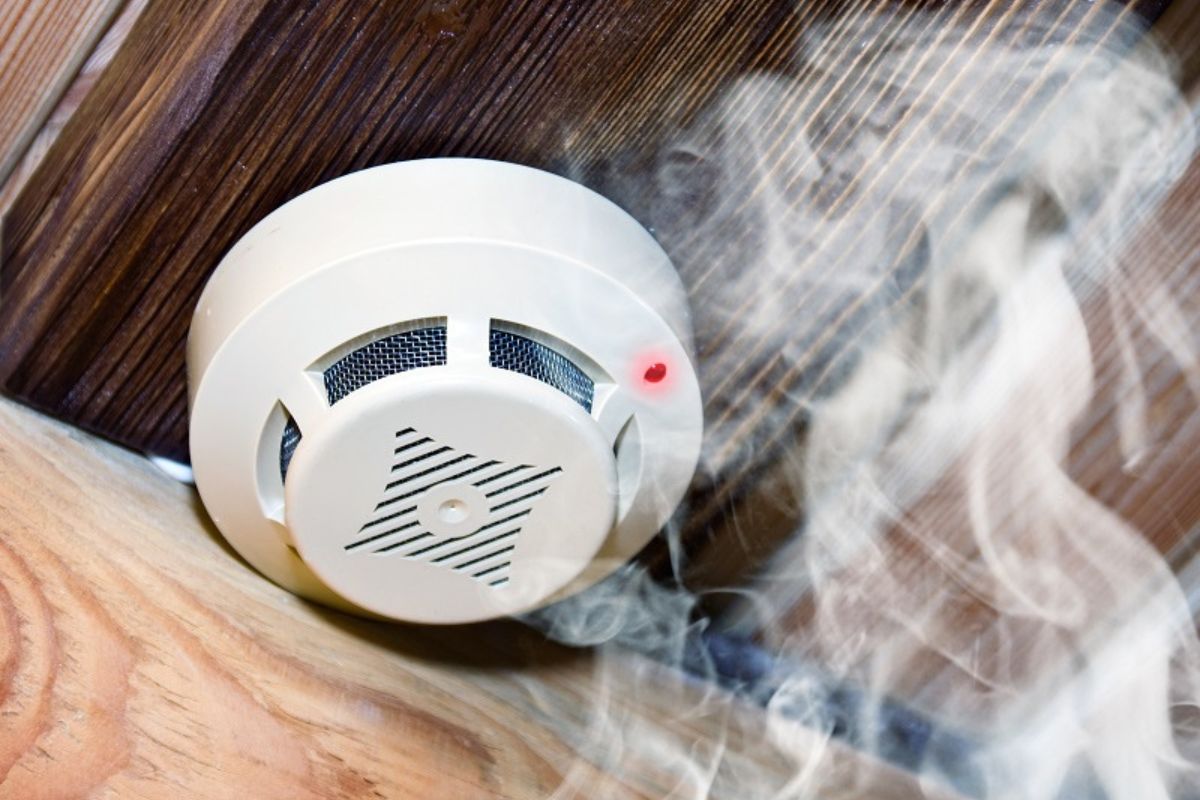

Articles
How Much Is A Smoke Detector
Modified: February 24, 2024
Discover the true cost of smoke detectors in our informative articles. Learn about the different types available, their benefits, and how to choose the right one.
(Many of the links in this article redirect to a specific reviewed product. Your purchase of these products through affiliate links helps to generate commission for Storables.com, at no extra cost. Learn more)
Introduction
Welcome to our comprehensive guide on smoke detectors! Whether you’re a homeowner, renter, or business owner, having smoke detectors installed in your property is crucial for the safety and well-being of everyone inside. In this article, we will explore the importance of smoke detectors, the different types available, the factors that affect their cost, and what to consider when purchasing one.
Smoke detectors are devices that are designed to alert occupants of a building in the event of a fire outbreak. They are a crucial component of any fire safety system, as they provide early warning signs and precious extra seconds to escape a potentially life-threatening situation. According to the National Fire Protection Association (NFPA), three out of five fire-related deaths occur in homes with either no smoke detectors or non-working ones.
Having functional smoke detectors installed in strategic locations throughout your property significantly increases the chances of detecting a fire early on and increases the likelihood of a successful evacuation. These devices play a crucial role in minimizing property damage, injuries, and even fatalities caused by fires.
There are different types of smoke detectors available on the market, each utilizing distinct technologies to detect the presence of smoke. The two most common types are ionization smoke detectors and photoelectric smoke detectors. Ionization smoke detectors are more sensitive to detecting flaming fires, while photoelectric smoke detectors are better at detecting smoldering fires.
For optimal protection, many homeowners opt for dual sensor smoke detectors, which combine both ionization and photoelectric technologies to provide comprehensive coverage against different types of fires. These types of smoke detectors offer a higher level of reliability and reduce the chances of false alarms.
The cost of smoke detectors can vary depending on various factors. These include the type of detector, features and functionality, brand reputation, and additional installation or monitoring services. It’s important to consider these factors and evaluate your specific needs before making a purchase.
In the next sections, we will delve into each type of smoke detector in more detail, explore the cost factors involved, and provide guidance on the average price range you can expect. We will also highlight the key factors you should consider before buying a smoke detector, ensuring you make an informed decision for the safety of your property and loved ones.
So let’s dive into the world of smoke detectors and discover all you need to know about these essential life-saving devices!
Key Takeaways:
- Prioritize safety and peace of mind by choosing the right smoke detector for your property. Consider factors such as type, reliability, maintenance, and budget to make an informed decision that protects your loved ones from potential fire hazards.
- Understanding the importance of early fire detection and the different types of smoke detectors available empowers you to invest in reliable, functional, and affordable devices. Take proactive steps to safeguard your property and loved ones.
Importance of Smoke Detectors
Smoke detectors are undoubtedly one of the most important devices you can have in your property. Their primary function is to detect the presence of smoke, which is often the earliest sign of a fire. By promptly alerting occupants to the danger, smoke detectors provide valuable time to evacuate safely and minimize potential harm.
Here are some key reasons why smoke detectors are of paramount importance:
- Early Detection: Fires can escalate rapidly, filling a space with thick smoke and toxic gases within minutes. Smoke detectors are designed to detect smoke particles in the air, even before visible flames appear. This early detection provides crucial extra seconds or minutes for occupants to escape before the fire spreads.
- Life-Saving Alerts: When a smoke detector detects smoke, it emits a loud and distinctive sound, typically between 85 to 100 decibels. This piercing alarm can wake you up from sleep or grab your attention from any part of the house, allowing you to take immediate action.
- Protecting Property: Fires can cause devastating damage to your property and personal belongings. Smoke detectors can help minimize the destruction by alerting authorities and enabling prompt firefighting efforts.
- Peace of Mind: Having functional smoke detectors installed throughout your property provides peace of mind. Knowing that you have early warning systems in place can help alleviate concerns about fire-related emergencies and ensure the safety of your loved ones.
- Legal Requirements: Many jurisdictions have laws and building codes that require the installation of smoke detectors. Compliance with these regulations not only ensures the safety of occupants but also helps meet legal obligations.
It is important to note that smoke detectors are not foolproof and cannot guarantee complete fire prevention. However, they are an essential tool for early detection, allowing for a quicker response to mitigate potential damage and save lives.
Remember, it is not enough to just have smoke detectors installed; regular maintenance is crucial. Conducting periodic checks, testing the devices, replacing batteries, and keeping them free from dust or debris are necessary to ensure their proper functioning.
To summarize, smoke detectors are an integral part of any fire safety system. They provide early warning signs, crucial evacuation time, and the peace of mind that comes from knowing you have taken a proactive step towards protecting yourself and your loved ones from the devastating effects of fires.
Types of Smoke Detectors
Smoke detectors are available in various types, each utilizing different technologies to detect the presence of smoke. Understanding the different types can help you choose the most suitable one for your specific needs. Here are the three main types of smoke detectors:
1. Ionization Smoke Detectors
Ionization smoke detectors are designed to detect the presence of small particles generated by fast-burning, flaming fires. These detectors contain a small amount of radioactive material, typically americium-241, which ionizes the air inside the device.
When smoke particles enter the ionization chamber, the electrical current between two charged electrodes is disrupted, triggering the alarm. This type of smoke detector is highly responsive to fast-spreading fires and is known for its ability to detect smoke produced by burning materials such as paper, wood, or flammable liquids.
However, ionization smoke detectors are less effective in detecting slow-burning, smoldering fires, which produce larger smoke particles. This limitation makes them less suitable for areas prone to smoky cooking or near bedrooms where smoldering fires are common during sleep.
2. Photoelectric Smoke Detectors
Photoelectric smoke detectors use a different approach to detect smoke. They employ a light source and a photocell, or light-sensitive sensor. When smoke particles enter the detection chamber, they scatter the light beam, causing it to be directed toward the photocell.
This change in light intensity triggers the alarm of the smoke detector, indicating the presence of smoke. Photoelectric smoke detectors are particularly adept at detecting slow-burning, smoldering fires, which tend to produce larger and more visible smoke particles.
These detectors are less prone to false alarms caused by cooking smoke or steam, making them suitable for areas near kitchens or bathrooms. However, they may be slightly slower in detecting fast-burning fires compared to ionization smoke detectors.
3. Dual Sensor Smoke Detectors
Dual sensor smoke detectors combine both ionization and photoelectric technologies, offering the benefits of both types in a single device. These detectors provide comprehensive coverage, capable of detecting both fast-burning fires and slow-burning, smoldering fires.
By using multiple sensors, dual sensor smoke detectors minimize the chances of false alarms and provide a higher level of reliability. Although they may be more expensive than single-sensor detectors, the added level of fire detection accuracy often justifies the investment.
When selecting the type of smoke detector for your property, it is important to evaluate the specific fire risks and the environment in which they will be installed. It can also be beneficial to consult with a fire safety professional who can provide guidance based on your specific needs.
Now that you have a better understanding of the different types of smoke detectors available, you can make an informed decision on which one is best suited for your property and will provide the most effective early warning in the event of a fire.
Ionization Smoke Detectors
Ionization smoke detectors are one of the most common types of smoke detectors found in residential and commercial properties. They work by utilizing a small amount of radioactive material, typically americium-241, which ionizes the air inside the detector.
The ionization process creates a small electrical current between two charged electrodes within the detector. When smoke enters the ionization chamber, it disrupts this current, triggering the smoke detector’s alarm. This quick change in current alerts occupants to the presence of smoke, providing an early warning sign of a potential fire.
Ionization smoke detectors are particularly adept at detecting smoke particles produced by fast-burning, flaming fires. These fires typically burn materials such as paper, wood, or flammable liquids and can escalate rapidly, filling a space with thick smoke.
The sensitivity of ionization smoke detectors to these types of fires makes them ideal for areas with a higher risk of rapidly spreading fires, such as living rooms, hallways, or common areas. However, it is important to note that ionization smoke detectors may not be as effective in detecting slow-burning, smoldering fires, which produce larger smoke particles.
Despite their effectiveness in detecting fast-burning fires, ionization smoke detectors have some limitations. They are more prone to false alarms triggered by cooking fumes, steam, or high levels of humidity. It is important to place them away from kitchens, bathrooms, or any area where these false triggers may occur frequently.
Regular maintenance is crucial for ionization smoke detectors to ensure their proper functioning. It is recommended to test the device monthly by pressing the test button, and replace the batteries at least once a year or when the low battery signal is activated. Additionally, cleaning the detectors regularly to remove dust or debris is essential.
It is worth noting that ionization smoke detectors are not the only type of smoke detector available. There are also photoelectric smoke detectors and dual sensor smoke detectors, which combine both ionization and photoelectric technologies for comprehensive fire detection.
When choosing the type of smoke detector for your property, consider the specific fire risks and the environment in which they will be installed. A combination of different types of smoke detectors strategically placed throughout your property can provide optimal fire detection coverage.
Remember, smoke detectors play a crucial role in providing early warning signs and precious evacuation time in the event of a fire. Regular maintenance and periodic checks will help ensure their effectiveness in keeping you and your loved ones safe.
Photoelectric Smoke Detectors
Photoelectric smoke detectors are another common type of smoke detector used in residential and commercial properties. Unlike ionization smoke detectors that rely on ionizing the air, photoelectric smoke detectors use a different technology that involves light detection.
Inside a photoelectric smoke detector, there is a light source, often a small LED, and a photocell or light-sensitive sensor. When smoke enters the detection chamber, it scatters the light beam, causing it to be redirected toward the photocell. This change in light intensity triggers the smoke detector’s alarm, indicating the presence of smoke.
Photoelectric smoke detectors are particularly effective in detecting slow-burning, smoldering fires that tend to produce larger smoke particles. These fires can ignite materials such as upholstery, mattresses, or electrical insulation, and may smolder for an extended period before bursting into flames.
One of the advantages of photoelectric smoke detectors is their reduced sensitivity to false alarms caused by cooking fumes, steam, or high humidity levels. This makes them suitable for areas such as kitchens, bathrooms, or other spaces where false triggers are more likely to occur.
While photoelectric smoke detectors excel at early detection of smoldering fires, they may be slightly slower in detecting fast-burning, flaming fires compared to ionization smoke detectors. However, the difference in response time is generally minimal and does not significantly impact their effectiveness as a fire safety device.
Just like any other smoke detector, regular maintenance is essential for photoelectric smoke detectors. Regularly testing the device, replacing batteries at least once a year, and keeping the detector clean from dust or debris are all important to ensure proper functionality.
In some cases, photoelectric smoke detectors may be combined with other types of detectors, such as carbon monoxide detectors or ionization smoke detectors, for comprehensive fire and gas detection coverage. This combination can provide a higher level of safety and early warning in the event of various emergencies.
When choosing the type of smoke detector for your property, consider the specific fire risks and the environment where they will be installed. A combination approach, using both photoelectric and ionization detectors strategically placed throughout your property, can provide the best overall protection.
Remember, regardless of the type of smoke detector you choose, regular maintenance is key to ensuring their effectiveness. It’s always better to be proactive and take steps to protect yourself and your loved ones from potential fire hazards.
Dual Sensor Smoke Detectors
Dual sensor smoke detectors are a type of smoke detector that combines both ionization and photoelectric technologies. By incorporating the strengths of both types, dual sensor detectors provide comprehensive fire detection and a higher level of reliability.
With dual sensor smoke detectors, you get the benefits of early detection for both fast-burning, flaming fires and slow-burning, smoldering fires. This combination ensures a broader coverage range and reduces the chances of false alarms.
These detectors are equipped with separate ionization and photoelectric sensors, each designed to detect specific fire signatures. When either type of sensor detects smoke particles, it triggers the smoke detector’s alarm, providing an early warning sign of a potential fire.
The dual sensor configuration makes these detectors versatile and well-suited for various environments. They are commonly used in residential homes, office buildings, and commercial spaces to provide enhanced fire detection capabilities.
One of the advantages of dual sensor smoke detectors is their ability to adapt to different types of fires. They are equally effective at detecting fast-burning fires that produce smaller smoke particles and slow-burning fires that generate larger smoke particles.
By incorporating both ionization and photoelectric sensors, dual sensor smoke detectors offer a higher level of reliability compared to single-sensor detectors. This reduces the chances of false alarms triggered by non-fire-related factors such as cooking fumes or steam.
With an increasing emphasis on fire safety and the importance of early detection, dual sensor smoke detectors have gained popularity among homeowners and building owners. While they may be slightly more expensive than single-sensor detectors, the added level of detection accuracy often justifies the investment.
As with any other type of smoke detector, regular maintenance is essential for dual sensor smoke detectors. This includes testing the device regularly, replacing batteries as needed, and ensuring the detectors are clean and free from dust or debris.
When selecting smoke detectors for your property, it is important to assess the specific fire risks and the environment in which they will be installed. Consulting with fire safety professionals can help you determine the most suitable combination of dual sensor and single-sensor detectors for optimal coverage.
Ultimately, dual sensor smoke detectors provide an added layer of protection against various types of fires, giving you peace of mind and ensuring the safety of your property and loved ones.
Read more: How To Smoke In A Room With A Smoke Detector
Cost Factors of Smoke Detectors
When considering the cost of smoke detectors, several factors come into play. Understanding these factors can help you make an informed decision and choose a smoke detector that fits your budget and meets your specific needs. Here are some of the key cost factors to consider:
1. Type of Smoke Detector:
The type of smoke detector you choose will impact the cost. Ionization and photoelectric smoke detectors are generally more affordable compared to dual sensor detectors, which offer a combination of both technologies. The added functionality and reliability of dual sensor detectors may result in a higher price point.
2. Features and Functionality:
Smoke detectors come with varying features and functionality. Some models may include additional features such as built-in carbon monoxide detection, voice alerts, wireless connectivity, or compatibility with home automation systems. These added features can increase the cost of the smoke detector.
3. Brand Reputation:
The reputation and brand of the smoke detector manufacturer can influence the cost. Well-known brands that have a strong track record of producing reliable and high-quality smoke detectors often command a higher price. It is important to balance brand reputation with your budget and specific requirements.
4. Installation and Monitoring:
The cost of smoke detectors may also include installation fees if you opt for professional installation. Additionally, some smoke detectors have the option for professional monitoring services, which can provide an added layer of security. These additional services may come with an ongoing cost or subscription fee.
5. Power Source:
The power source of the smoke detector can impact the cost. Battery-operated smoke detectors are typically less expensive, while hardwired models that require professional installation may have a higher upfront cost. Hardwired smoke detectors often come with a backup battery to ensure functionality during power outages.
6. Maintenance and Replacement:
Consider the maintenance and replacement costs associated with the smoke detectors you choose. Some models may require more frequent battery replacements or require professional maintenance, which can add to the overall cost over time.
It is important to evaluate your specific needs and budget when considering the cost of smoke detectors. Remember, the cost of the smoke detector is an investment in the safety and protection of your property and loved ones.
While it can be tempting to opt for the cheapest option, prioritize reliability, functionality, and effectiveness in detecting fires. Research different models, read customer reviews, and seek recommendations from fire safety professionals to ensure you choose a smoke detector that offers the best value for your specific requirements.
By considering these cost factors and making an informed decision, you can select a smoke detector that meets your needs, fits your budget, and provides the peace of mind that comes with knowing you have taken proactive steps towards fire safety.
Average Price Range of Smoke Detectors
The price range of smoke detectors can vary depending on several factors, including the type of detector, brand reputation, features, and additional services. Understanding the average price range can help you budget for your smoke detector purchase. Here’s a breakdown of the typical price range:
Read more: How To Cover A Smoke Detector
1. Ionization Smoke Detectors:
Ionization smoke detectors, which are more common and generally less expensive than other types, generally range from $10 to $30. These affordable options provide basic smoke detection capabilities and are suitable for most residential and commercial spaces.
2. Photoelectric Smoke Detectors:
Photoelectric smoke detectors typically fall within the range of $20 to $50. These detectors offer enhanced detection of smoldering fires and are often preferred for areas prone to false alarms caused by cooking fumes or high humidity.
3. Dual Sensor Smoke Detectors:
Dual sensor smoke detectors, which combine both ionization and photoelectric technologies, tend to be on the higher end of the price spectrum. They generally range from $40 to $100 or more, depending on the brand, features, and additional services.
4. Brand and Features:
Beyond the type of detector, the brand reputation and features can also influence the price. Well-established brands known for quality and reliability may have a higher price tag. Smoke detectors with advanced features such as built-in carbon monoxide detection or wireless connectivity may also be priced at the higher end of the range.
Read more: How To Remove A Smoke Detector
5. Installation and Monitoring Costs:
Consider any additional costs associated with installation and monitoring services. If you opt for professional installation, there may be an extra fee. Some smoke detectors offer the option for professional monitoring services, which may require an ongoing subscription fee.
It’s important to note that these price ranges are rough estimates and can vary depending on various factors such as sales promotions, discounts, or geographical location. It’s always a good idea to compare prices from different retailers and online platforms to ensure you get the best deal.
While cost is an important factor, prioritize reliability and effectiveness in detecting fires when choosing a smoke detector. It’s better to invest in a slightly more expensive, high-quality option that provides accurate and timely alerts, rather than opting for the cheapest alternative that may compromise your safety.
Remember, smoke detectors are a crucial component of fire safety, and their price should be viewed as an investment in protecting your property and loved ones from potential fire-related emergencies.
Factors to Consider When Buying Smoke Detectors
When it comes to choosing the right smoke detectors for your property, there are several important factors to consider. By evaluating these factors, you can make an informed decision and ensure you select smoke detectors that provide optimal fire detection coverage. Here are the key factors to consider:
1. Type of Smoke Detector:
Determine the most suitable type of smoke detector for your needs. Consider whether you require ionization detectors, photoelectric detectors, or a combination of both in the form of dual sensor detectors. Assess the specific fire risks and environment in which the detectors will be installed.
2. Sensitivity and Detection Range:
Evaluate the sensitivity and detection range of the smoke detectors. Look for detectors that can detect smoke particles in a wide area, ensuring that they cover the desired space adequately and provide early warning signs in the event of a fire.
Read more: How To Block A Smoke Detector
3. Reliable Alarm System:
Check the alarm sound and volume of the smoke detectors. A loud and distinctive alarm is essential for alerting occupants to the presence of smoke. Consider the decibel level and choose a smoke detector with an alarm that can be heard from all areas of the property.
4. Power Source and Battery Life:
Determine the power source that best suits your preference and needs. Smoke detectors can be battery-operated or hardwired. Consider the convenience of battery replacement versus the need for professional installation for hardwired models. Additionally, ensure that battery-operated smoke detectors have a long-lasting battery life to minimize the frequency of battery changes.
5. Additional Features:
Consider any additional features that may be valuable for your specific requirements. Some smoke detectors offer features like carbon monoxide detection, wireless connectivity, voice alerts, or compatibility with home automation systems. Assess the usefulness of these features and determine whether they align with your needs.
6. Brand Reputation and Reviews:
Research the reputation of the brand before purchasing smoke detectors. Look for reputable brands that have a track record of producing reliable and high-quality devices. Read customer reviews and testimonials to gain insights into the experiences of other users.
Read more: What Is A Smoke Detector?
7. Maintenance and Testing:
Consider the maintenance requirements of the smoke detectors. Regular testing and maintenance are crucial for ensuring their proper functionality. Look for detectors that are easy to test and maintain, and check the manufacturer’s recommendations for cleaning and maintenance procedures.
8. Budget and Cost:
Set a budget for your smoke detector purchase and consider the cost of the detectors along with any additional installation or monitoring fees. Balance your budget with the importance of reliable and effective fire detection, and prioritize quality and safety over price alone.
By carefully considering these factors, you can choose smoke detectors that are best suited to your specific needs and provide the highest level of fire detection coverage for your property. Remember, smoke detectors are a critical component of fire safety and can make a significant difference in protecting lives and property in the event of a fire.
Conclusion
Choosing the right smoke detectors is a crucial step in ensuring the safety and well-being of your property and loved ones. Smoke detectors play a vital role in providing early warning signs and precious evacuation time in the event of a fire. By considering important factors such as the type of smoke detector, sensitivity, reliability, power source, additional features, brand reputation, maintenance requirements, and budget, you can make an informed decision.
There are different types of smoke detectors available, each with its own strengths and limitations. Ionization smoke detectors are effective in detecting fast-burning, flaming fires, while photoelectric smoke detectors excel at detecting slow-burning, smoldering fires. Dual sensor smoke detectors combine both technologies to provide comprehensive fire detection. Understanding the specific fire risks and environment in which the detectors will be installed can help determine the most suitable type.
Reliability and functionality are key considerations when selecting smoke detectors. Look for detectors with a reliable alarm system that produces a loud and distinctive sound. Evaluate the power source and battery life based on your convenience and preference. Consider additional features such as carbon monoxide detection, wireless connectivity, and voice alerts for added functionality.
Brand reputation and customer reviews are also important factors to consider. Opt for reputable brands that have a track record of producing reliable and high-quality smoke detectors. Regular testing and maintenance are essential for the proper functioning of smoke detectors, so choose ones that are easy to maintain and meet your maintenance preferences.
While cost is an important consideration, prioritize quality and effectiveness in detecting fires over price alone. Set a budget, but remember that smoke detectors are an investment in the safety and protection of your property and loved ones. By evaluating these factors and making an informed decision, you can select smoke detectors that provide optimal fire detection coverage.
In conclusion, smoke detectors are a critical component of fire safety. They provide early warning signs, valuable evacuation time, and peace of mind. Take the time to research, assess your specific needs, and choose smoke detectors that offer reliability, functionality, and affordability. Regularly test and maintain your smoke detectors to ensure their proper functioning. With the right smoke detectors in place, you can rest assured knowing that you have taken proactive steps to protect your property and loved ones from potential fire hazards.
Frequently Asked Questions about How Much Is A Smoke Detector
Was this page helpful?
At Storables.com, we guarantee accurate and reliable information. Our content, validated by Expert Board Contributors, is crafted following stringent Editorial Policies. We're committed to providing you with well-researched, expert-backed insights for all your informational needs.
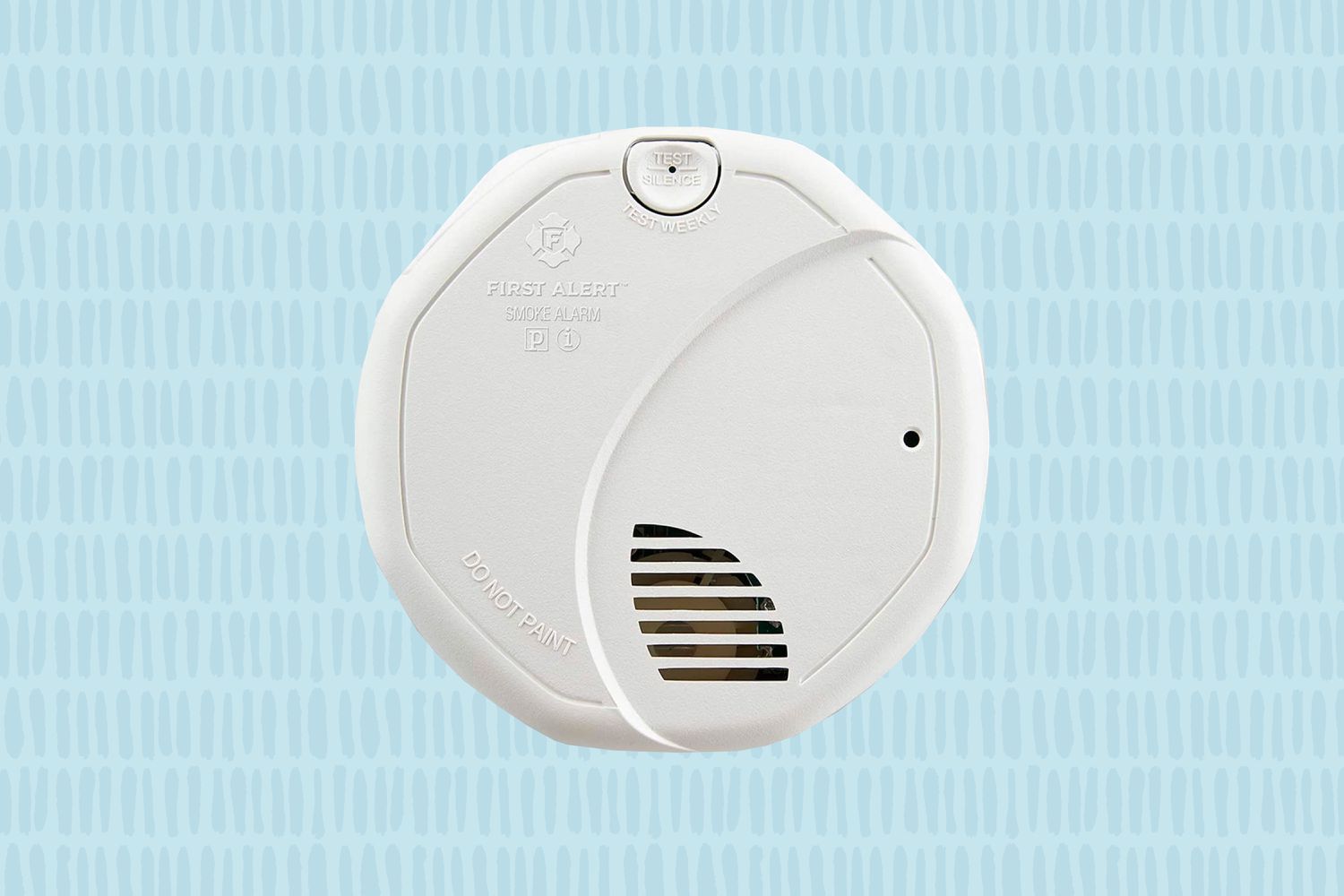
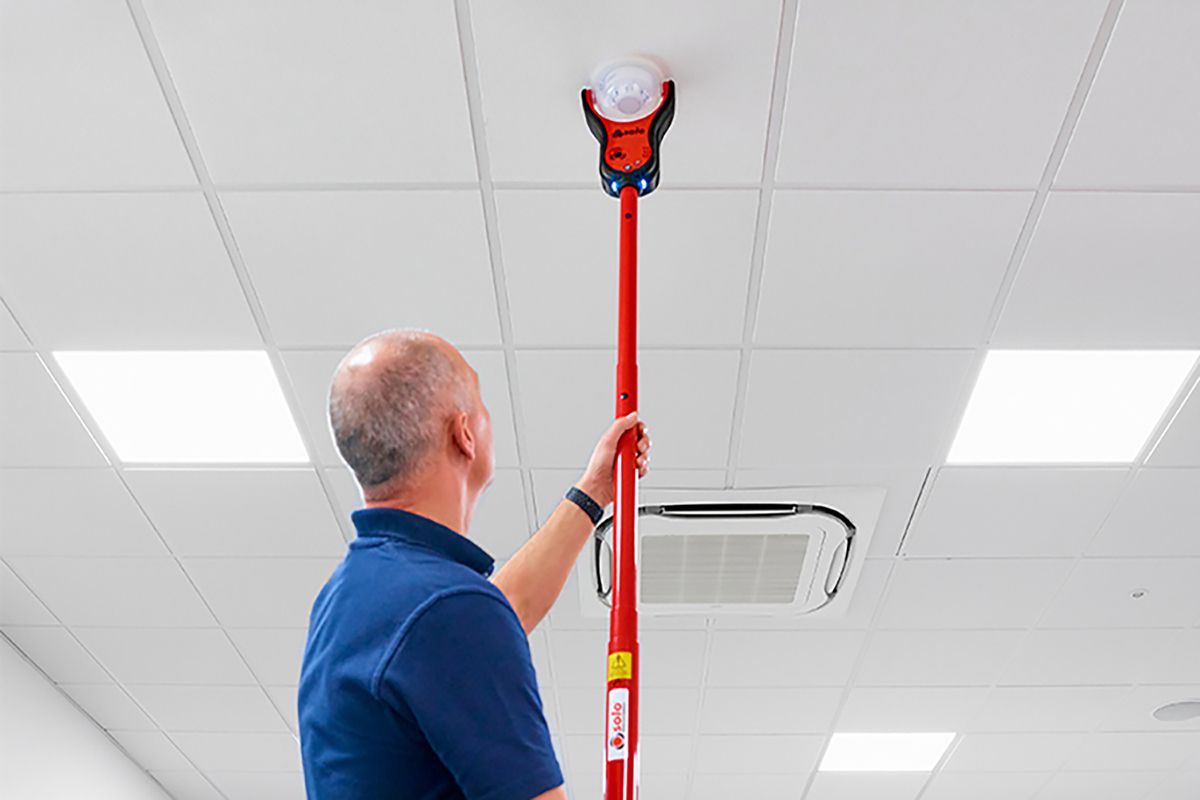
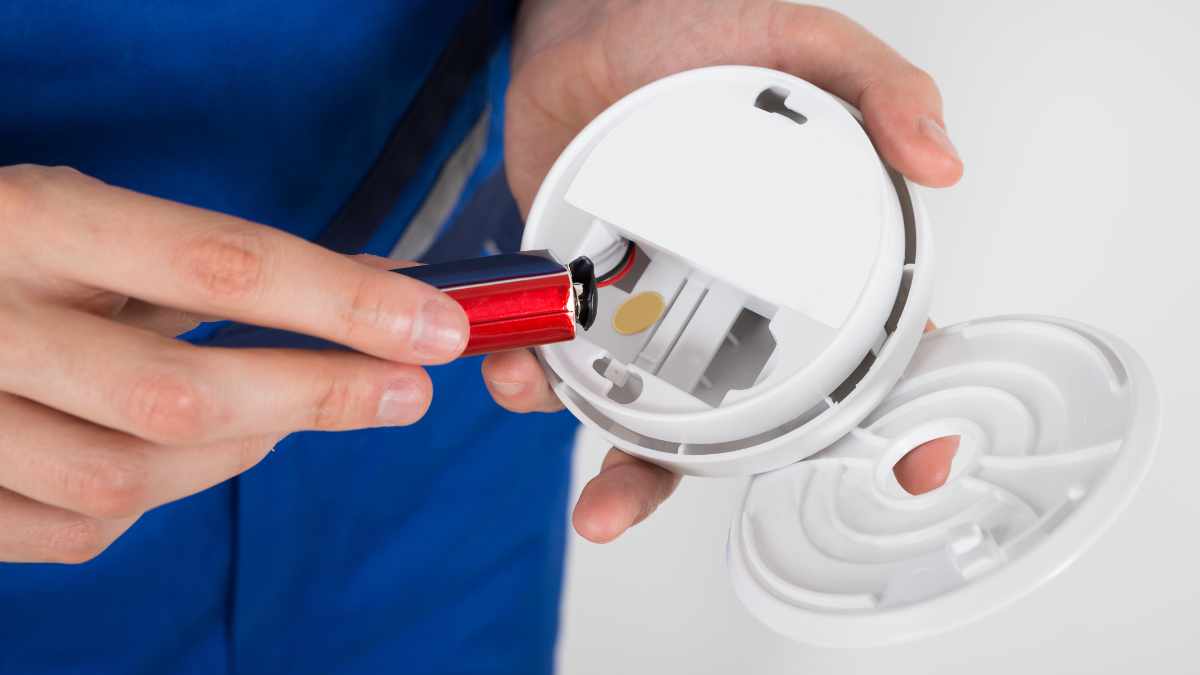
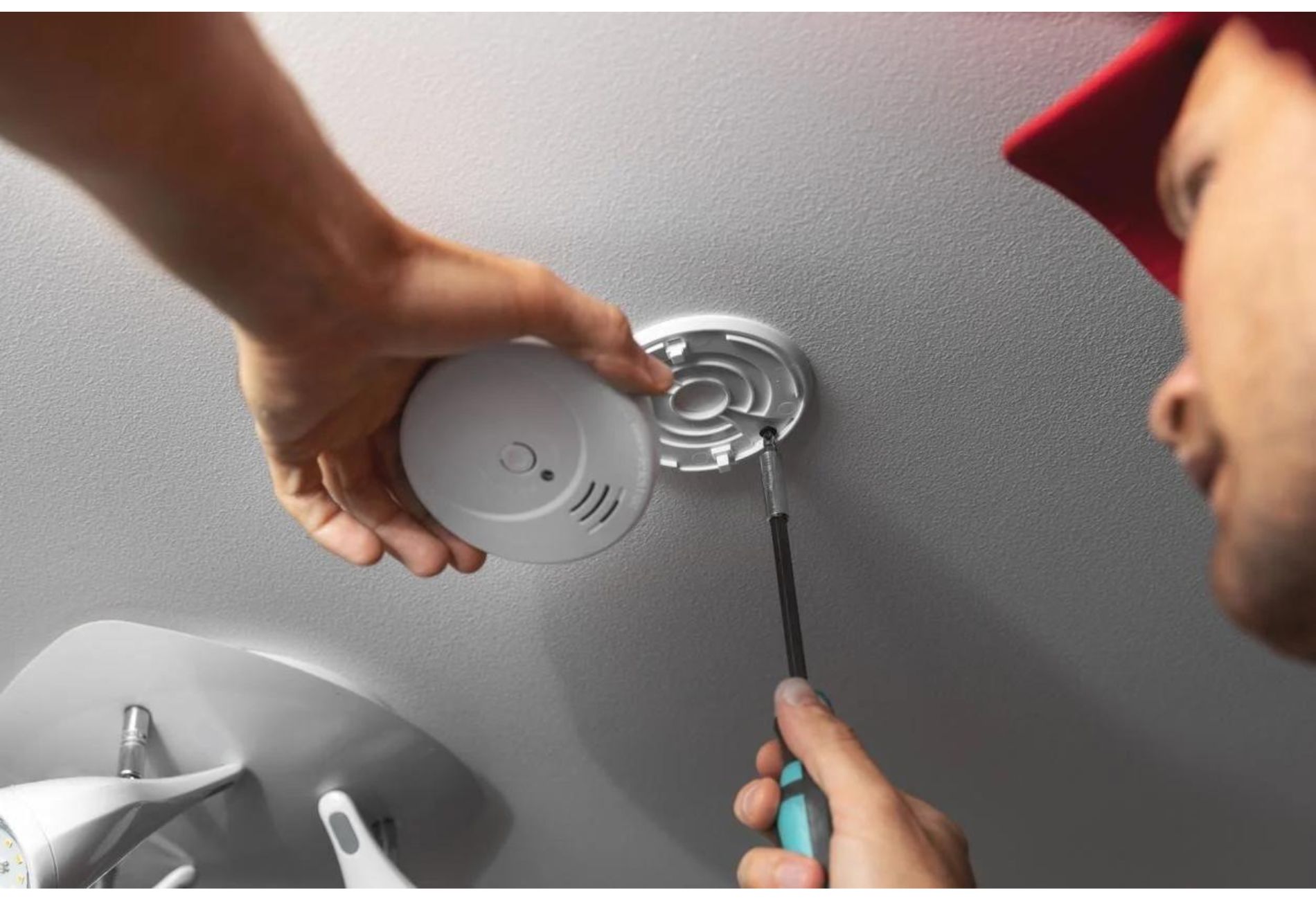
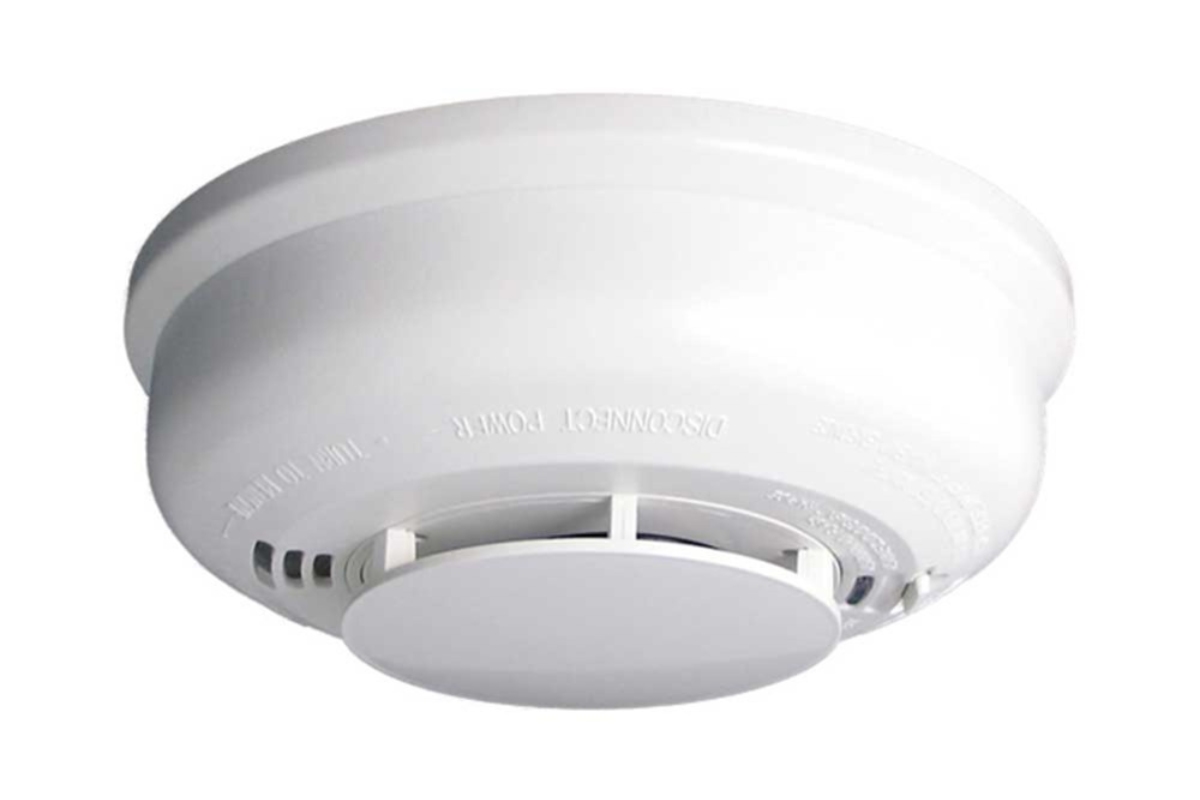
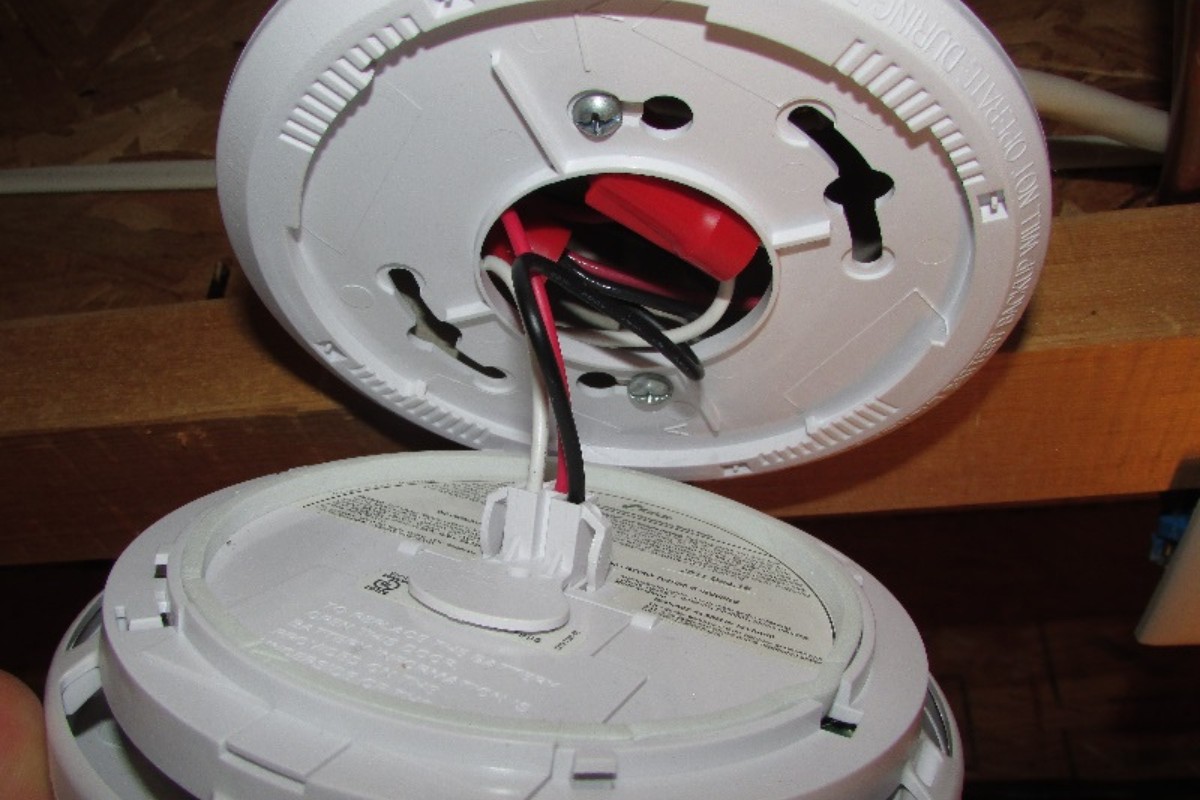
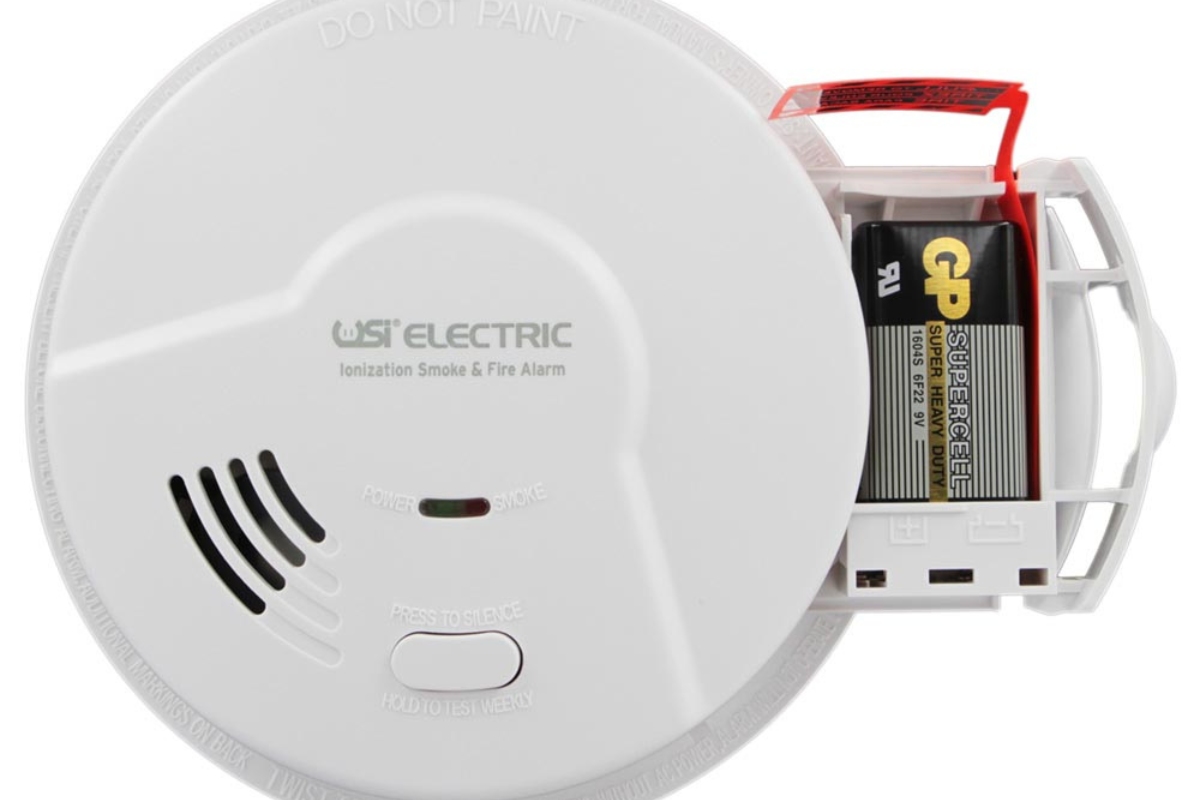
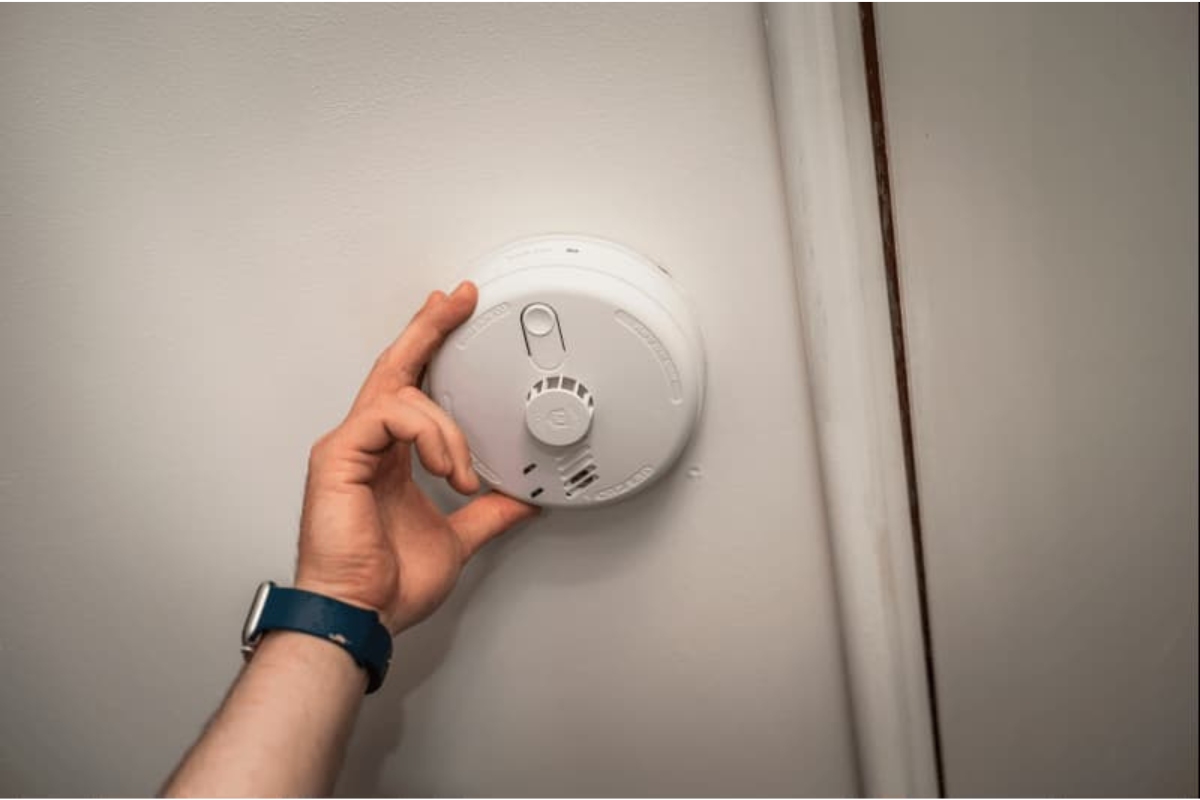

0 thoughts on “How Much Is A Smoke Detector”